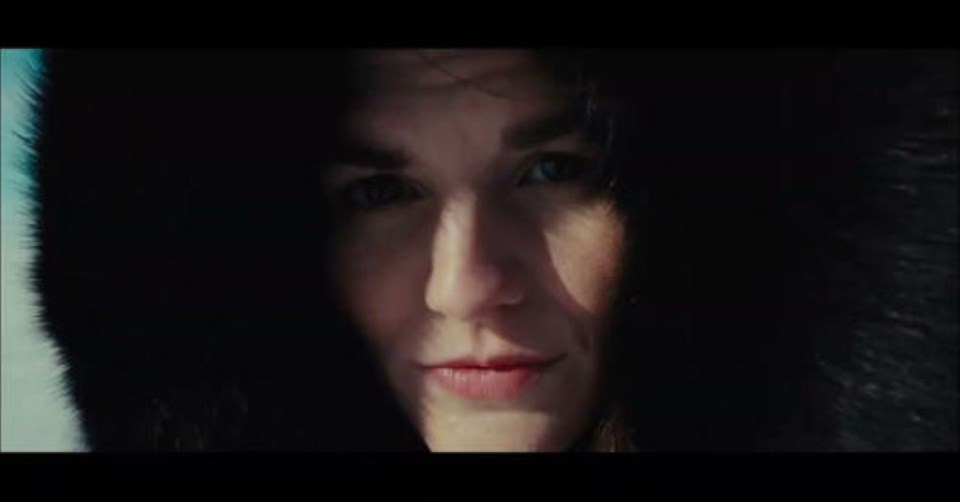Carrier Sekani Family Services unveiled Stories of Hope & Strength, a powerful film series amplifying the voices of Indigenous women, girls, and LGBTQ2+ communities at the Prince George Playhouse recently.
With this project Carrier Sekani Family Services hopes to change the narrative of the ongoing crisis of violence toward Indigenous peoples, sharing personal stories of resilience, healing, empowerment and hope.
Stories of Hope & Strength proudly launched its first short film recently on social media.
The short is called Tracie Léost - Unstoppable and is directed by Linda Nelson.
The film features Red River Métis leader, activist and athlete Tracie Léost, who shares what inspires her to raise her voice for future generations of Indigenous youth. Tracie embodies ‘you are strength’ through the acknowledgement of the inner power to raise her voice, embrace her identity and to fight back against systems of oppression, the film introduction said.
Léost is a true leader and advocate as seen by her accomplishments.
In 2015 Léost ran 115km in four days to raise funds and awareness for those missing and murdered Indigenous women, girls and two-spirited people, which gained international attention for her advocacy efforts.
In 2018 Léost received the Metis Inspire award and in 2020 she was presented with the Gabriel Dumont Bronze Medal for her outstanding service to the Métis of Canada, one of the Métis Nation’s highest civilian honours.
In 2020 Léost started non-profit Waanishka Movement Inc. as she began her last year at the University of Regina while earning her bachelor of social work program. In the Michif language, waanishka is a command to ‘get up and rise’, which encourages Indigenous youth to reclaim their heritage, share their stories and empower one another to make positive change.
Léost recently began working with the Malala Foundation raising awareness of violence against Indigenous women and was awarded one of CBC Manitoba’s Future 40, honouring impressive, community-minded Manitobans making the province better for future generations and named one of Canada’s most decorated Indigenous young people.
Right now she is completing her masters in education at Nipissing University.
She connected with a producer of the Stories of Hope & Strength film series, Matt Smiley, who had helped Mary Teegee-Gray of Carrier Sekani Family Services with the film For Love in 2022 and Léost met him at that time.
“So when this project came to be he had spoken to Carrier Sekani Family Services team about me and kind of made some introductions and asked if I would want to be part of the project,” Léost said.
“It was the easiest thing to say yes to and it was something I was very eager to participate in. My vignette is called Unstoppable and it’s pretty accurate. It talks about my role in leadership and my advocacy efforts and it really talks about my hope for young people. I talk in my vignette about how I want young people to know they can challenge systems, and they don’t have to do things simply because that’s the way they’ve always been done. It talks about the encouragement and hope I have for youth and the power that I think young people have to change the world.”
The short film talks about how the entire country and society needs to understand and address the epidemic of murdered and missing women, girls and two-spirited people, she added.
“It’s a very powerful vignette,” Léost said. “It is very truthful but it also calls on the greater public to do their part. I think in the era of Truth & Reconciliation we are getting ourselves on the right track and that’s very evident in the conversations we’re having in the curriculum in the education system, in the way Indigenous topics are talked about politically, on all levels of government. We’re on the right track with Orange Shirt Day and National Day for Truth & Reconciliation but we haven’t gotten it yet.”
Reconciliation is a journey, not a sprint, she added.
“And that is evident because not all 94 Calls to Action have been implemented, only a handful of them are so I think we’re starting to get there but I think there’s a lot of work that still needs to be done to move closer to what reconciliation looks like," Léost said.
"In terms of the Calls for Justice we have a very long, long, long, long, long way to go because very few of the MMIWG2S Calls for Justice are implemented. I think reconciliation will help get us there and in the same breath I do think we’re starting to have these conversations and that’s why this project exists. And I am seeing more of the public aware of these kinds of topics. I’m seeing more people aware of the way that settler colonialism, violence, and Indigenous women are misrepresented in the media. More people are aware of those implications into this epidemic so I think - are we starting to learn? Yes. But considering this is still an epidemic speaks that we’re not there yet.”
Within the Stories of Hope & Strength film series the focus is on lived experiences, cultural strength, and unbreakable spirit of survivors, families, and future leaders.
“Our stories are not just statistics,” said Mary Teegee-Gray, Carrier Sekani Family Services executive director of Child & Family Service.
“This film series was created to remind the world that behind every number is a young woman with a story, a community with strength, and a culture with deep-rooted resilience. These films are about the power, beauty, and brilliance of our people.”
To see Léost’s inspiring vignette visit www.youtube.com/watch?v=a4MH9CVQHJk&t=1s.



